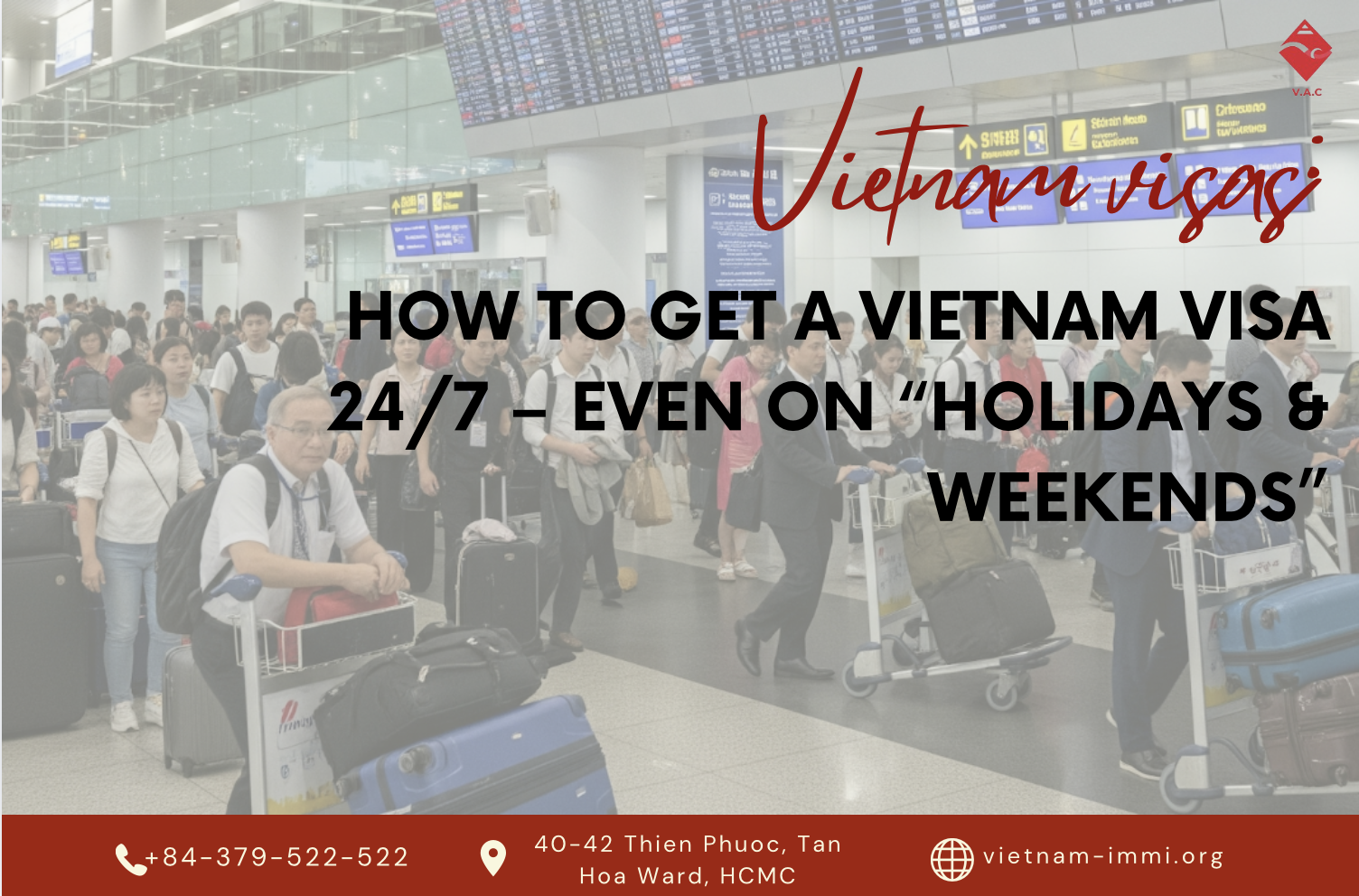
Last Update: Friday November 07, 2025
If you’re planning a last-minute trip to Vietnam or facing a tight travel schedule, Vietnam-immi.org offers a convenient solution to get your Vietnam visa anytime – even on weekends and holidays. This review explores how the platform provides reliable, round-the-clock visa services tailored for urgent and time-sensitive travel needs.

Photo: Collected
One of the biggest strengths of vietnam-immi.org is its 24/7 customer support. Whether it’s a Sunday night or a national holiday, the support team responds promptly to visa inquiries and applications. This round-the-clock availability is especially valuable for travelers in different time zones or those booking at the last minute.
The team also communicates through multiple channels, including email, WhatsApp, and live chat—ensuring you're never left waiting.
If you need an urgent Vietnam visa, the site offers expedited services with turnaround times as quick as 2, 4 hours and weekend & holiday optiooption in emergency cases. You can choose from:
Same-day processing
1 working day processing
Emergency weekend/holiday processing
For travelers who accidentally miss the visa application window or face sudden itinerary changes, these fast-track options provide peace of mind.
Read more about the process on our Blog: Expedite Your Vietnam Visa Today – 30-Minute, Same-Day & Urgent And Emergency Visa Services
Most government visa offices don’t operate on holidays—but vietnam-immi.org fills that gap with its fast-track visa on holidays feature. They work directly with immigration officials, enabling them to process applications even when official channels are closed.
This is ideal for:
Travelers with flights during weekends or public holidays
Those needing a visa issued or corrected outside working hours
The website is user-friendly and walks you through each step of the visa process. You'll find:
An online visa form that takes only a few minutes to complete
Clear instructions on required documents
Transparent package options for standard or urgent processing
While the pricing is higher than the government portal, the added support, speed, and convenience justify the cost for travelers who need flexibility.
Pricing: Includes both the government fee and service charges for document handling, application monitoring, and support.
Refunds & Support: Offers partial refunds and dedicated case handling for urgent visa issues.
If you're in need of an urgent visa for Vietnam, especially during weekends or public holidays, vietnam-immi.org offers a reliable and fast-track alternative to the official portal. While it comes at a higher price, the 24/7 Vietnam visa support, quick turnaround times, and assistance on holidays make it a valuable resource for time-sensitive travelers.
Whether you need a fast visa, airport fast track, private car, or eSIM, Vietnam-Immi.org is here 24/7 to support your trip.
Whatsapp: +84379522522
Hotline: +84.379.522.522
Email: sales@vietnam-immi.org
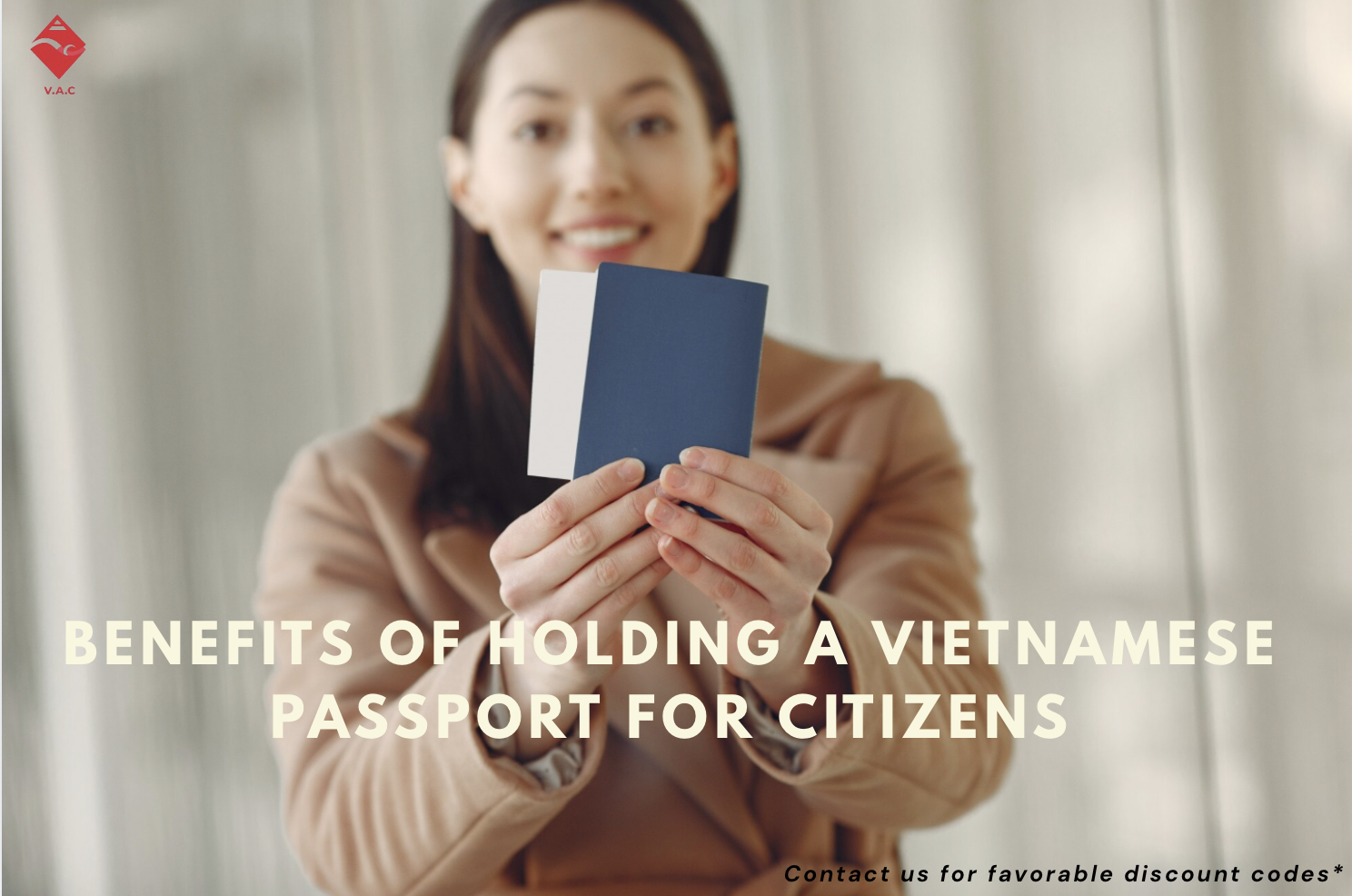
Last Update: November 04, 2025
A Vietnamese passport offers more than just a travel document—it represents a range of legal, economic, and mobility advantages for its holders. Whether you're a citizen living in Vietnam or a Viet Kieu (overseas Vietnamese) considering reclaiming Vietnamese citizenship, holding a Vietnamese passport can open many doors.
Vietnam currently issues three types of passports:
Ordinary Passport (Hộ chiếu phổ thông)
Issued to all Vietnamese citizens for travel, work, and study abroad. This is the most common type.
Official Passport (Hộ chiếu công vụ)
Given to government employees traveling on official duties.
Diplomatic Passport (Hộ chiếu ngoại giao)
Reserved for high-ranking officials and diplomats representing Vietnam abroad.
For most citizens and overseas Vietnamese, the ordinary passport is the relevant one—yet even this basic version carries many significant benefits.
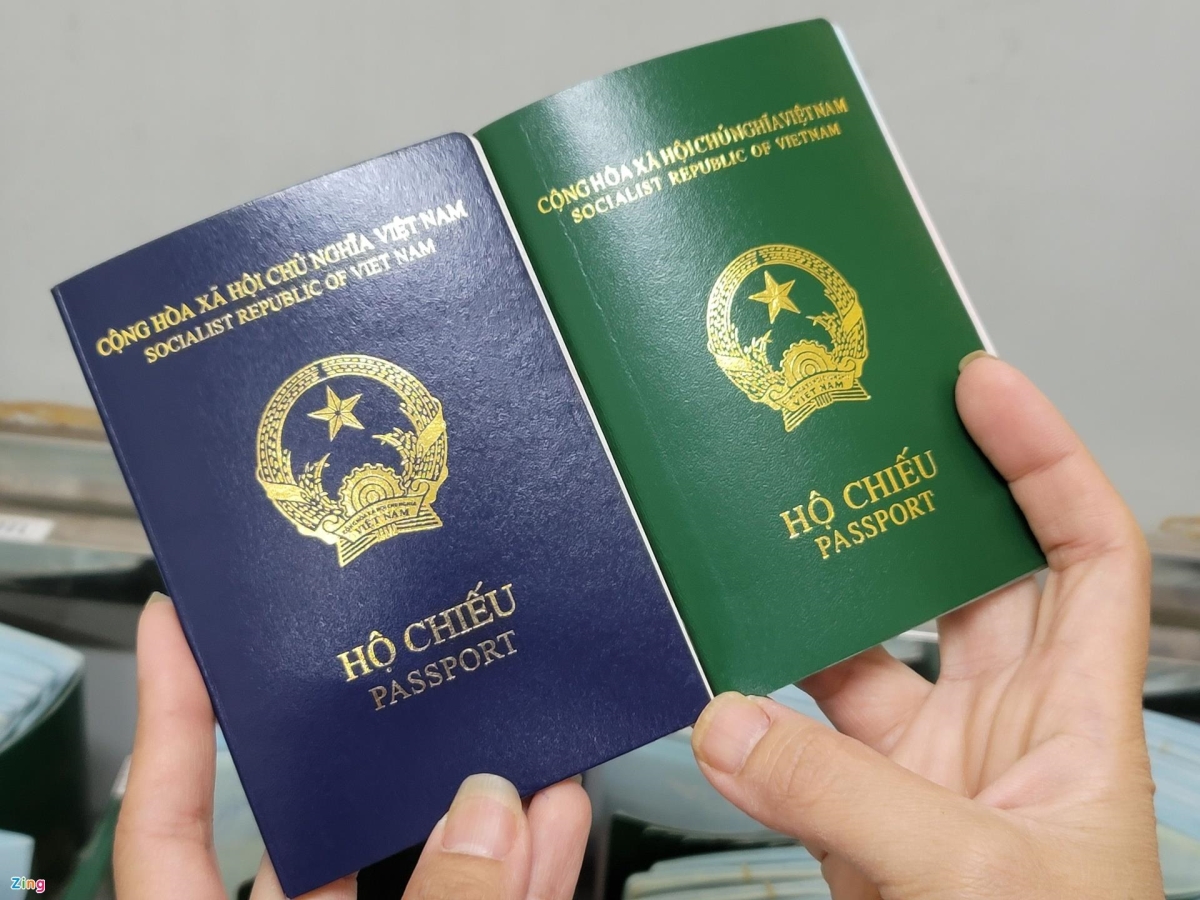
Photo: Collected
With a Vietnamese passport, you can enter and exit Vietnam at any time without applying for a visa or temporary residence permit. This is especially valuable for Viet Kieu who want to reconnect with their roots, spend extended periods in Vietnam, or live part-time between countries.
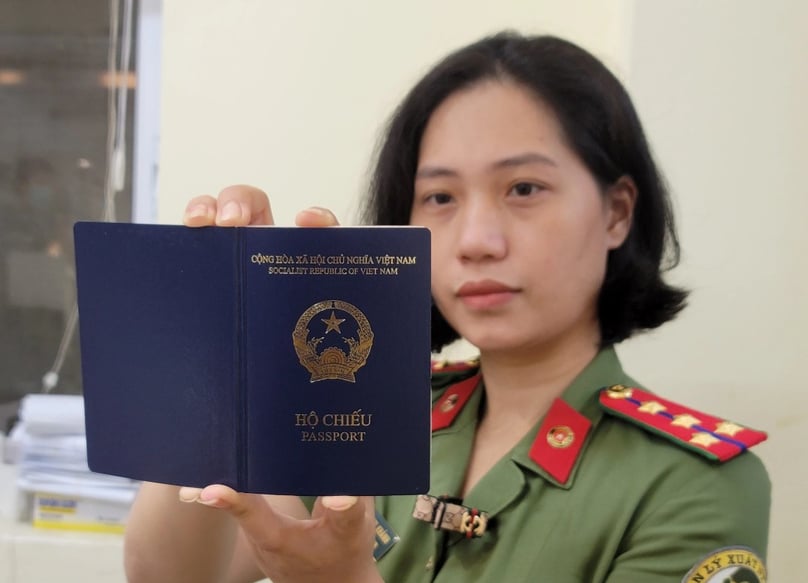
Photo: Collected
Vietnamese passport holders can travel visa-free or visa-on-arrival to several countries, including:
All ASEAN nations (e.g., Thailand, Singapore, Indonesia, Malaysia, the Philippines)
Some countries in Asia, the Caribbean, and Africa
While the Vietnamese passport may not be as globally powerful as some others, its regional strength makes it ideal for business, leisure, and family travel in Southeast Asia.
Vietnamese citizens, including those who reclaim citizenship, have greater rights to buy and own property in Vietnam compared to foreign nationals. This includes:
Buying houses and apartments
Long-term land use rights (even though land is technically owned by the state)
Access to better terms for loans and mortgages
For Viet Kieu planning to retire or invest in Vietnam, this is a major incentive to hold a Vietnamese passport.
Vietnamese citizens are allowed to start and fully own businesses in Vietnam without needing a local partner or special approvals. This includes:
Opening companies in most sectors
Easier registration processes
Access to domestic support programs and funding
Compared to foreigners, citizens enjoy a simpler legal framework and fewer restrictions.
This is a major step toward reconnecting global Vietnamese communities with their homeland.
Whether you need a fast visa, airport fast track, private car, or eSIM, Vietnam-Immi.org is here 24/7 to support your trip.
Whatsapp: +84379522522
Hotline: +84.379.522.522
Email: sales@vietnam-immi.org
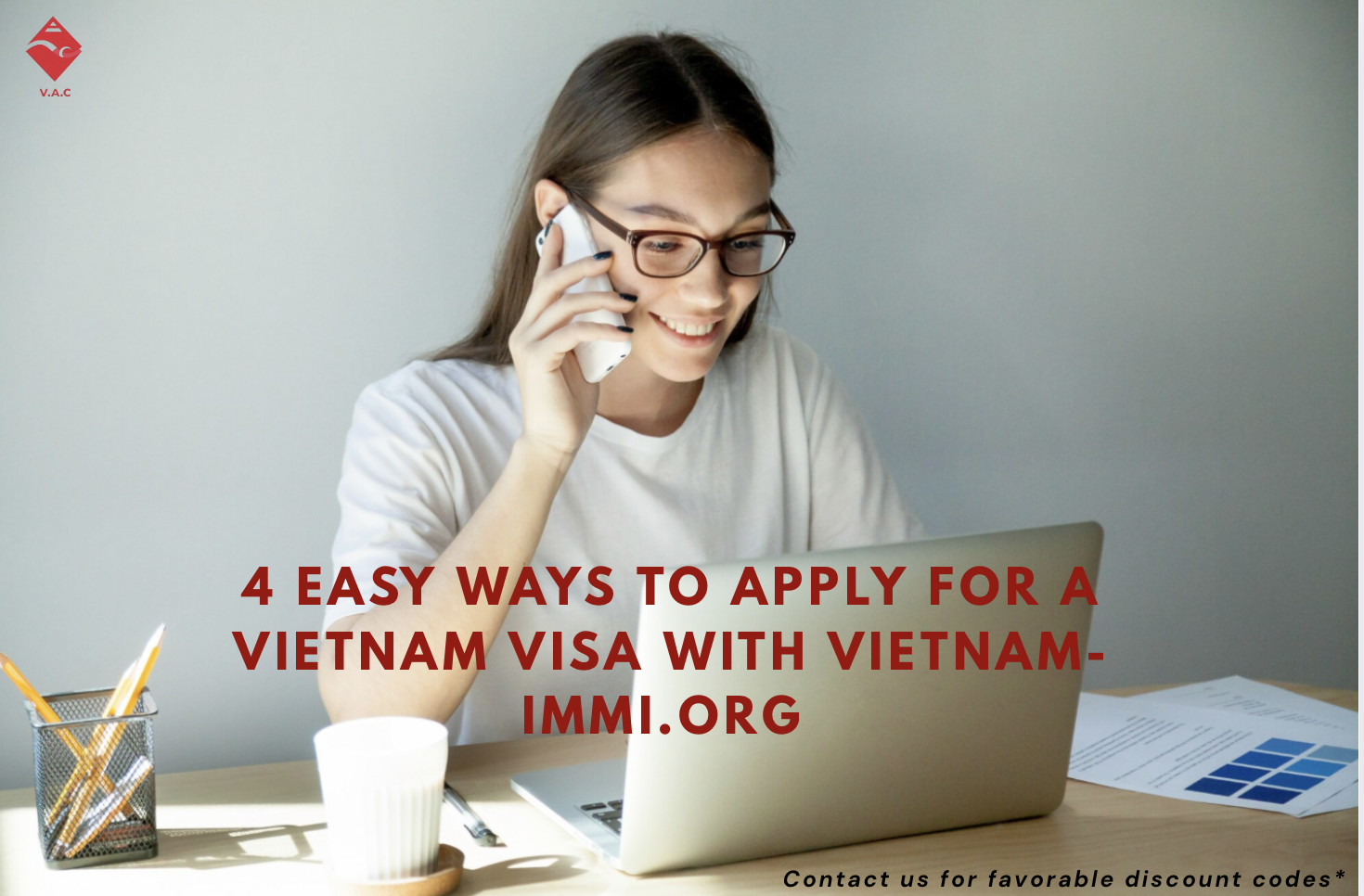
Last Update: Sunday November 02, 2025
Applying for a visa should not be complicated, especially when traveling for tourism, business, or family visits. Vietnam-immi.org provides a streamlined Vietnam visa service that supports travelers in obtaining both the Vietnam e-visa application and the Vietnam visa approval letter required for Visa on Arrival (VOA). With multiple contact options available, applicants can choose the most convenient method to complete their Vietnam visa online.
Below are four easy ways to apply for your Vietnam visa with Vietnam-immi.org:
The website is the simplest and fastest way to submit your Vietnam e-visa application or request a Vietnam visa approval letter. The step-by-step online form allows you to enter personal details, travel information, and upload necessary documents. Secure payment options help finalize your Vietnam visa online in minutes. Applicants receive confirmation via email and ongoing support throughout the process.
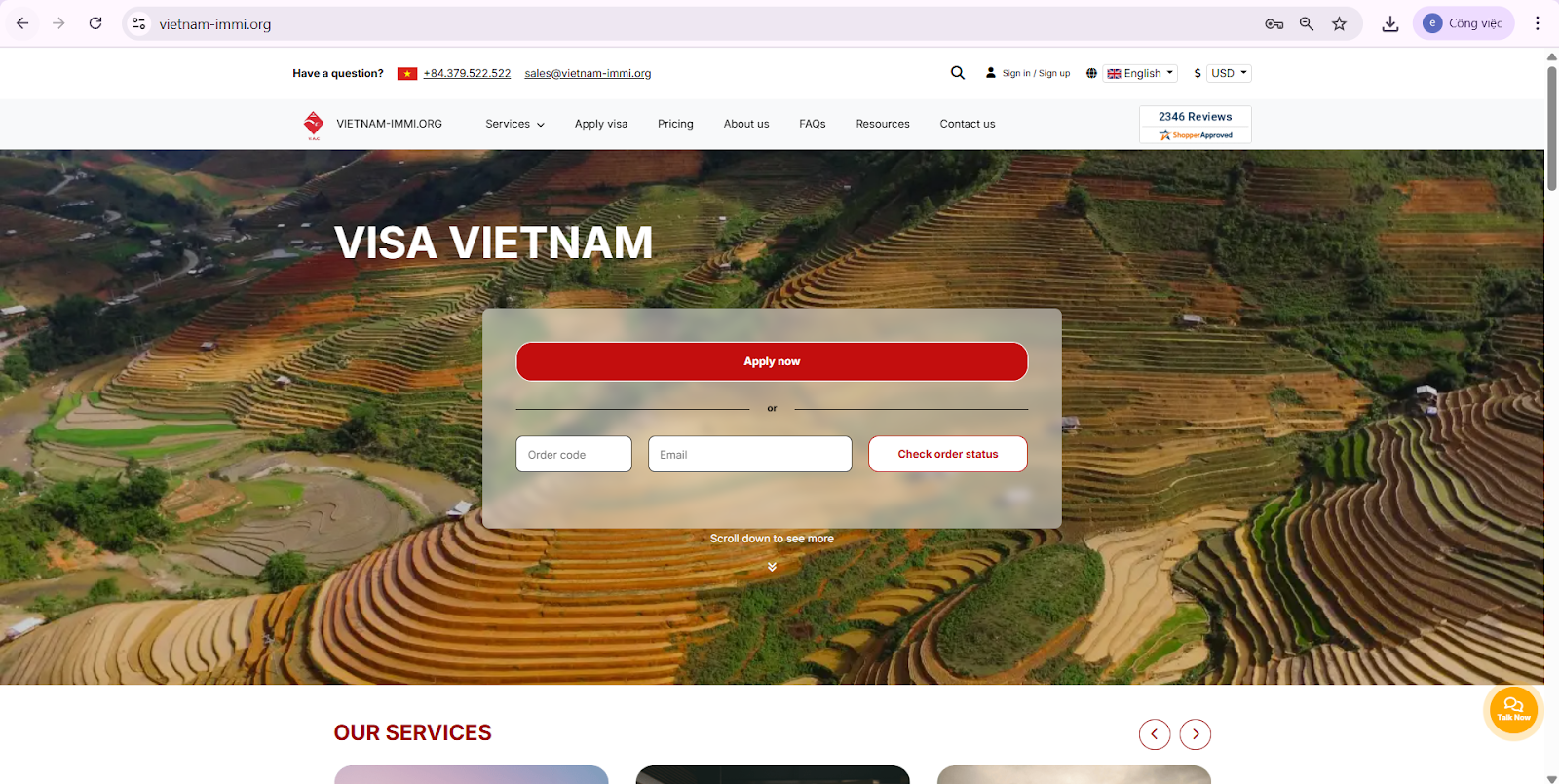
Pro tips: Read More about Step-By-Step Guide To Completing The Vietnam-Immi.org's Visa Service Form
For travelers who prefer quick assistance or have urgent questions, the live chat function on Vietnam-immi.org offers immediate help. Professional visa consultants provide guidance, check your information, and help you complete the Vietnam e-visa application correctly. This option is ideal if you need real-time support or advice before submission.
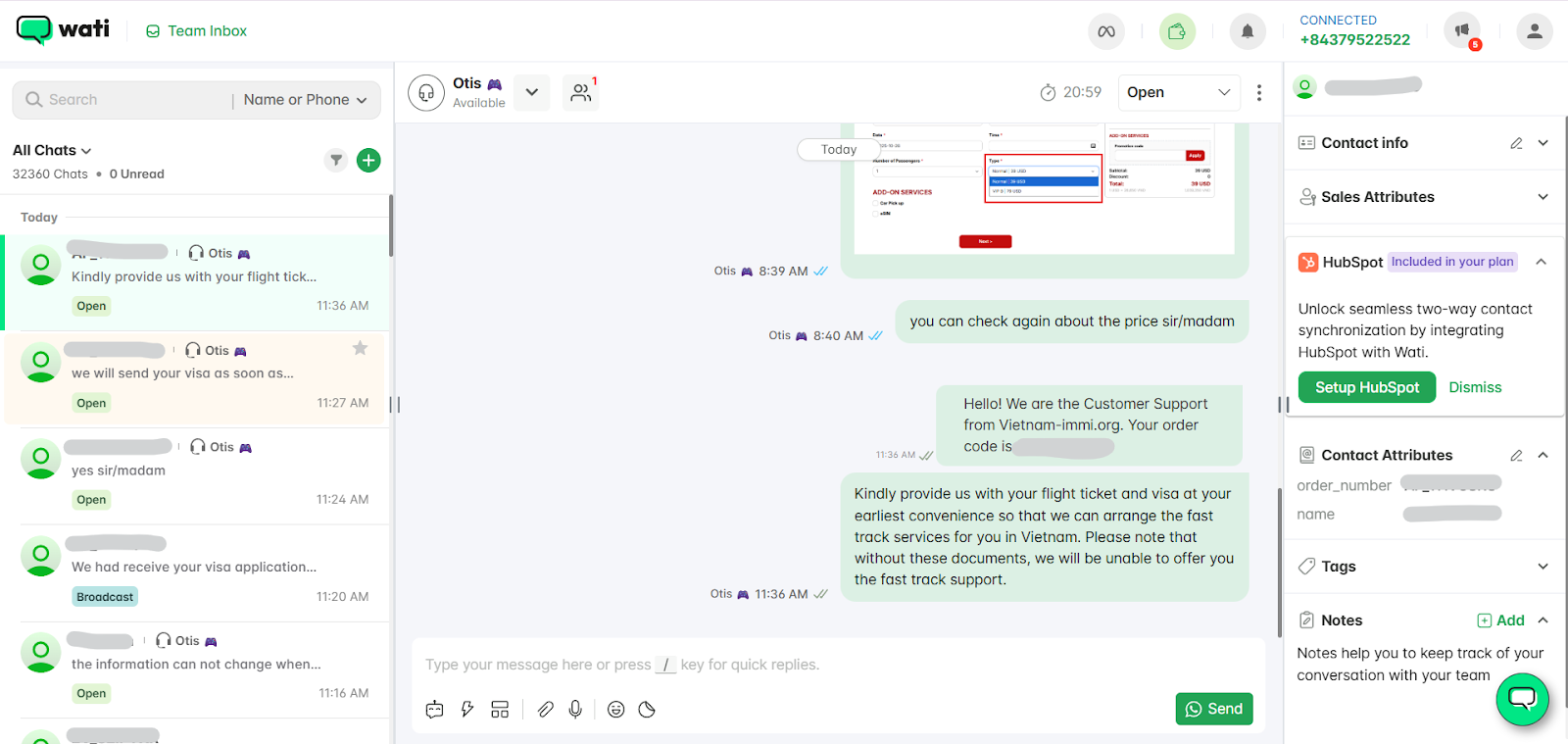
Applying for a Vietnam Visa is now easier than ever. With Vietnam-immi.org, you can choose from four quick and secure methods — including online E-Visa application, visa approval letter, or our convenient mobile app. Enjoy a smooth, trusted process with expert support every step of the way.

A phone call gives applicants direct access to experienced visa advisors who can explain the process clearly and offer solutions for unique travel plans. This method is suitable for first-time visitors or those who require urgent processing of a Vietnam visa approval letter for last-minute travel.

Photo: Collected
Why Choose Vietnam-immi.org
Vietnam-immi.org is committed to providing a safe, reliable, and efficient Vietnam visa service with responsive customer care. Whether you need a Vietnam e-visa application or an urgent Vietnam visa approval letter, all four support channels ensure that your request is handled professionally from start to finish.
Whether you need a fast visa, airport fast track, private car, or eSIM, Vietnam-Immi.org is here 24/7 to support your trip.
Whatsapp: +84379522522
Hotline: +84.379.522.522
Email: sales@vietnam-immi.org

Last update: Monday October 27, 2025
Forget paperwork, long queues, and last-minute stress. With the Vietnam-immi.org app, you hold the power of a local travel concierge in your pocket—helping you glide through immigration, secure your car pickup, and stay connected with an eSIM, all with a few taps.
The Vietnam-immi.org app bundles all your entry, travel, and support needs into a single, sleek, intuitive interface. Whether you’re flying in for business, visiting family, or exploring Vietnam, everything you need is just a few taps away:
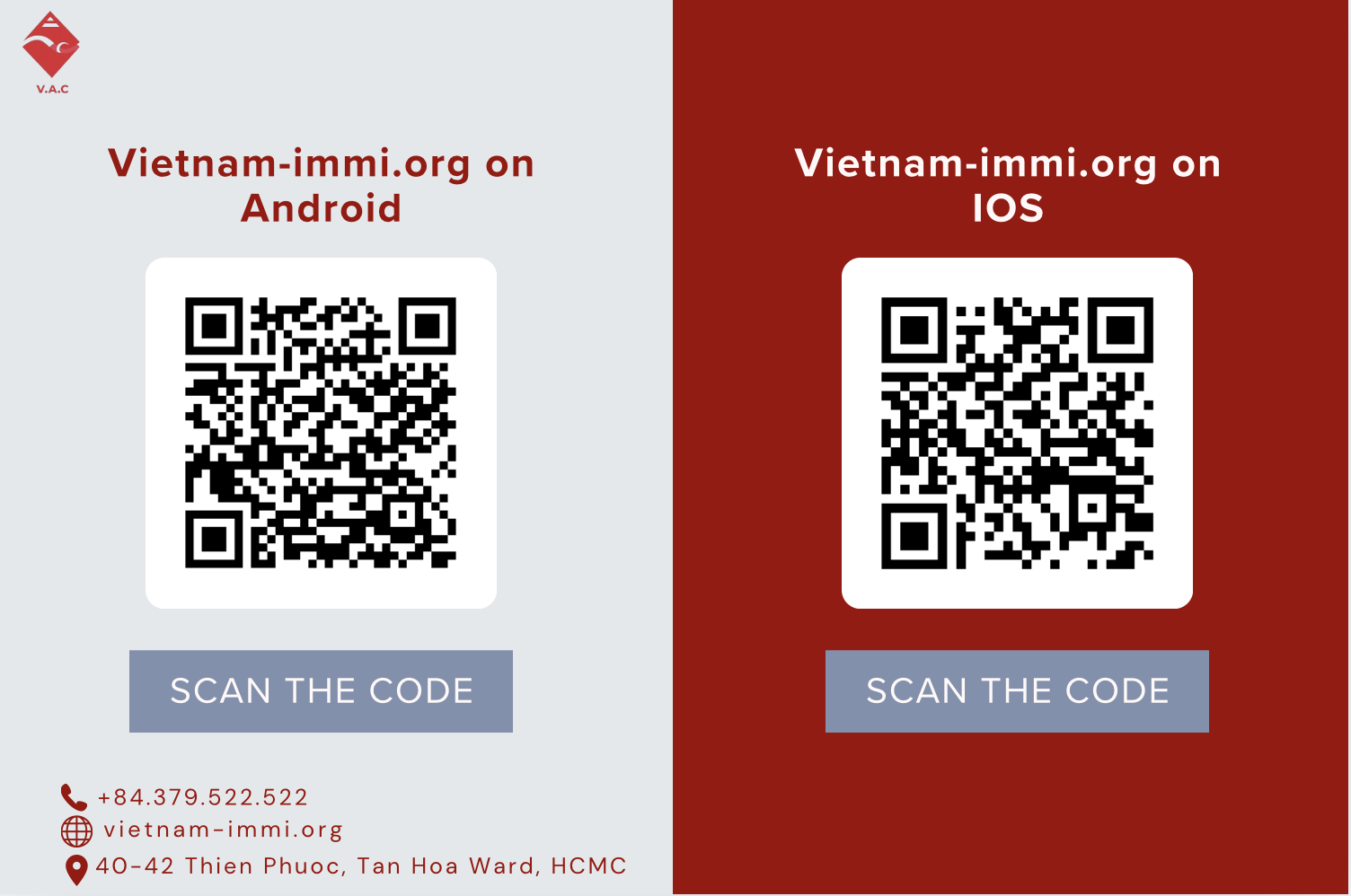
Visa Services — Apply for e-Visas or Visa on Arrival (VOA) without the usual paperwork fuss. Skip confusing procedures, fill in one form, submit, and track.
Fast-Track Airport Assistance — Breeze past immigration or long arrival queues with priority access and supervision.
Car Pick-Up / Drop-Off — Pre-book your ride so you’re not scrambling after landing. The driver meets you, you’re off. No waiting.
Stay Connected via eSIM — Avoid hunting for a local SIM. Turn on your phone, activate your eSIM, stay online right away. Ideal for booking transport, checking maps, or sharing your journey instantly.
Consular Services — Need translations, passports, legalization, or help with long-term visa exemption? The app handles that too.
Travelers praise the Vietnam-immi.org App for its ease of use and reliable support. Many describe it as “very easy to use” and “convenient”, with quick assistance whenever needed. Others highlight how helpful it is for tourists, making the visa process and travel arrangements smooth and stress-free.
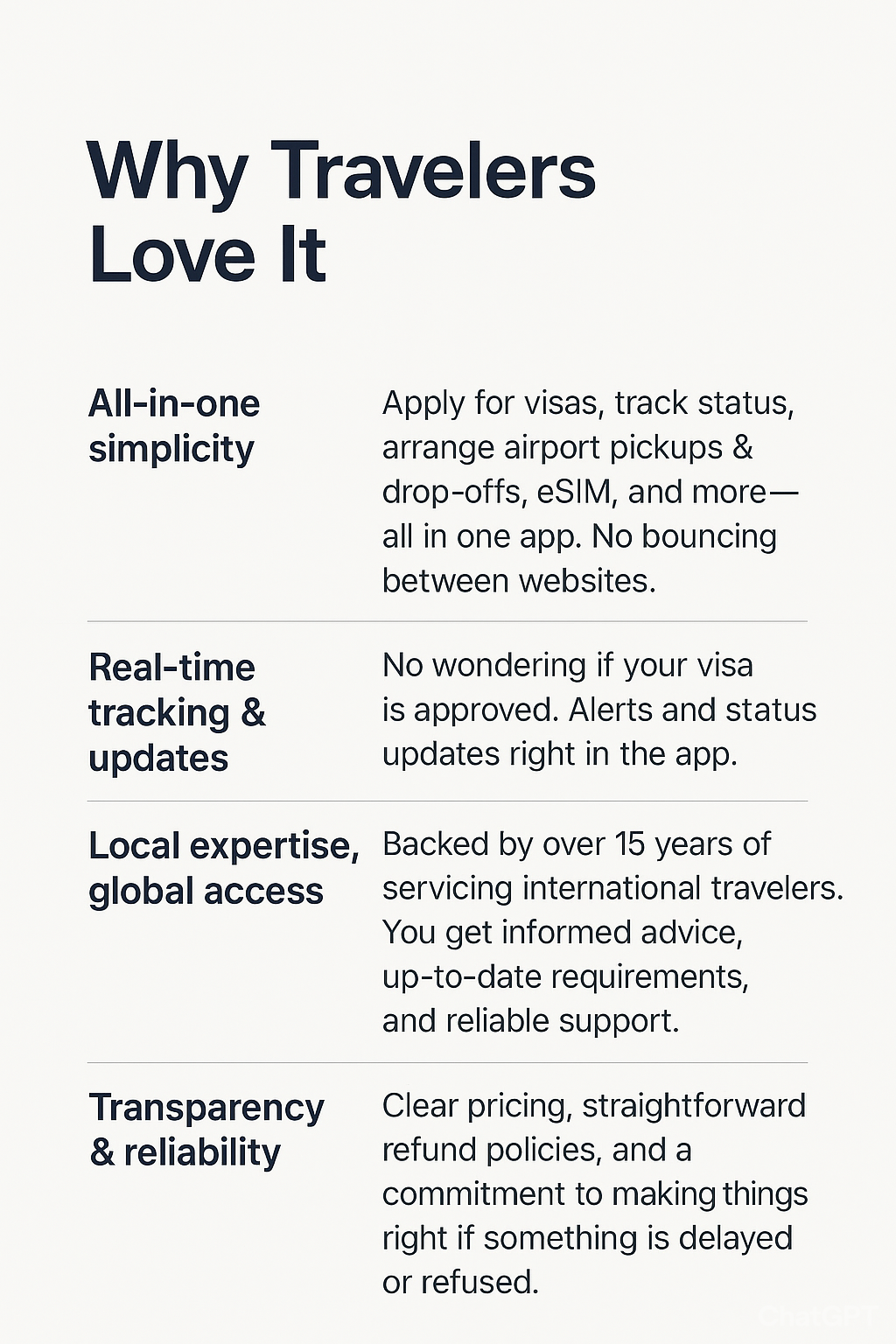
1. Download & Sign Up
Available on both iOS (App Store) and Android (Google Play). Install, register with your email & phone.
➡ You can download easily here with just a click:
Download on Android
Download on IOS
2. Choose Your Services
Whether you need a visa, car pickup, fast-track, eSIM, or consular help (or some combination), select what you need. The UI guides you.
3. Fill Out the Relevant Forms
The app walks you through information required for each service (passport details, travel dates, etc.). It validates entries so you get fewer surprises.
4. Make Payment Securely
All payments are handled in-app with secure options. Clear fees are shown before you commit.
5. Track & Receive
See your visa application status, get notifications, confirm car pickup/driver details, activate your eSIM—every step is tracked so you’re informed.
6. Arrive & Enjoy
With everything pre-arranged, your arrival in Vietnam becomes more welcoming: minimal waiting, fewer hassles, more time enjoying the moment.
First-time visitors who are unfamiliar with Vietnam’s immigration and airport norms.
Business travelers who need fast and reliable entry and transport services.
Tourists who care about maximizing time, minimizing stress.
Anyone who prefers everything digital, pre-arranged, and well-organized.
With the Vietnam-immi.org app, you gain more than a set of services—you get peace of mind. Because traveling should be about discovery, not dead time in lines or lost in bureaucracy. Let the app handle logistics so you can focus on what matters: the journey.
Contact us and let us know your travel plans! Whether you’re coming for leisure or business, our team is here to support you with the latest Vietnam visa updates, urgent visas, and Fast Track airport services.